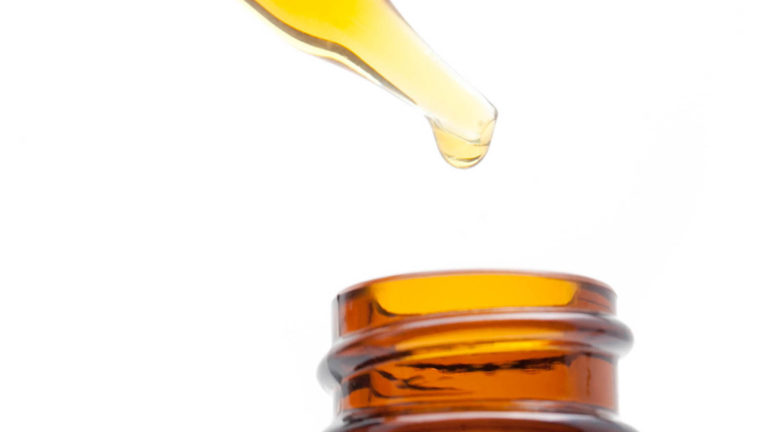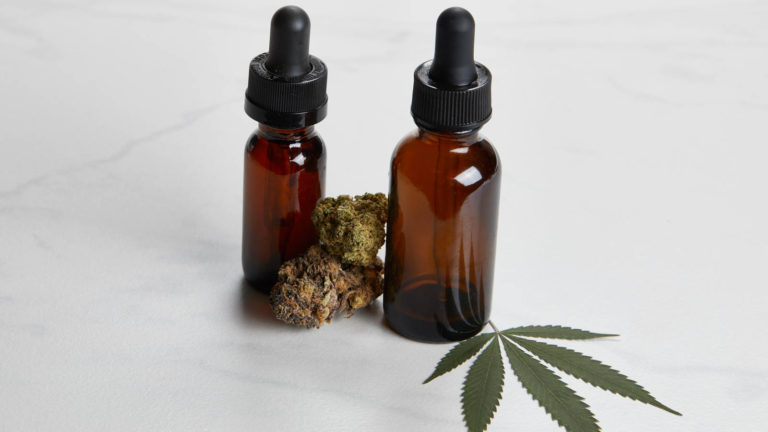Yes. Hemp-derived cannabidiol (CBD) products are legal and relatively easy to find in Arkansas. While the state's CBD laws generally follow federal rules outlined in the 2018 Farm Bill, recent legislation has introduced some important changes at the state level.
As with federal laws, Arkansas differentiates between cannabis, which is defined as plants that contain more than 0.3% THC, and popularly called marijuana — and hemp, — which is a plant that contains less than 0.3% THC.
In 2019, Arkansas passed new legislation that removes products derived from hemp plants from the state's list of controlled substances. This, in combination with earlier rules related to CBD products, essentially legalized hemp-derived CBD and made Arkansas's rules much more open. As a result, CBD and CBD products are now widely available both online and in stores throughout the state.
What is CBD?
Cannabidiol is the cannabis plant's second-most-prevalent cannabinoid behind THC. Generally speaking, while both THC and CBD are psychoactive, THC produces marijuana's intoxicating effects while CBD does not.
 Photo by: Gina Coleman/Weedmaps
Photo by: Gina Coleman/WeedmapsImage lightbox

To date, researchers have identified a number of potential health benefits linked to CBD, including anti-inflammatory, analgesic, anti-anxiety, and anti-seizure properties. This cannabinoid has also shown promise in treating numerous medical conditions to mood disorders such as depression, anxiety, and psychosis, to chronic pain, cancer, and much more.
With research ongoing, there is a growing body of evidence pointing to CBD's potential efficacy in medical applications and as a health supplement.
Why is CBD sometimes illegal?
Even though hemp strains don't produce enough THC to cause intoxication, all types of cannabis, including hemp, were made illegal under the 1970 Federal Controlled Substances Act. The legislation swept all forms of cannabis into the Schedule 1 category, which is defined as a substance with a high potential for abuse, no accepted medical use, and a likelihood for addiction.
The 2018 Farm Bill legalized industrial hemp cultivation hemp-derived products, creating a pathway to remove some cannabis from Schedule 1 status by differentiating between hemp and marijuana. Under this law, hemp is cannabis that contains less than 0.3% THC by weight, and marijuana is cannabis that contains more than 0.3% THC.
As a result, CBD products derived from hemp were thus descheduled by the bill, but CBD that is derived from the marijuana plant is still considered federally illegal because marijuana is categorized as a Schedule 1 substance. While hemp is now considered an agricultural commodity, it still must be produced and sold under the terms of the bill. The USDA has yet to place these regulations in effect.
The Farm Bill also granted the U.S. Food and Drug Administration (FDA) with the power to regulate CBD product labeling, therapeutic claims, as well as its use as a food additive or dietary supplement. The FDA has taken the stance that hemp-derived CBD may not be added to food and beverages, nor marketed as dietary supplements.
While the FDA has begun a process of reevaluating its stance on such CBD products, it has yet to revise its rules or specifically regulate CBD products, leading to further confusion. The FDA has been strict when it comes to health claims and content that could be construed as medical advice about CBD.
The federal legislation still highly regulates the production and sale of hemp and its cannabinoids, including CBD. The Farm Bill also provides that states may regulate and even prohibit CBD cultivation and commerce. In addition, states may attempt to regulate CBD food, beverage, dietary supplement, and cosmetic products, independently of the FDA finalizing its views on such products.
Arkansas CBD laws
As with federal law, the bulk of Arkansas's CBD laws center around whether CBD is derived from industrial hemp, which contains less than 0.3% THC. Since 2018, the Arkansas State Plant Board (ASPB), which is part of the state's Department of Agriculture, has been managing all activities related to hemp in the state. As such, it is a key player in establishing the state's rules regarding CBD.
A document released by the ASPB on Aug. 31, 2018, aims to clarify many of the state's most important rules for CBD. First, it makes the distinction between industrial hemp and cannabis, or what is popularly called marijuana. Aligning with federal law, Arkansas considers anything with 0.3% THC or more by weight to be illegal, while anything with less than 0.3% THC by weight is considered “industrial hemp” and therefore, products derived from these plants are considered legal.
 Photo by: Gina Coleman/Weedmaps
Photo by: Gina Coleman/WeedmapsImage lightbox

Currently, anything categorized as cannabis (more than 0.3% THC) is illegal in Arkansas, including cannabis-derived CBD. The only exception to this is certain cases in which patients are participating in Arkansas' medical marijuana program.
Clarifying the ways that hemp-derived CBD may be sold in the state, the ASPB allows for what it calls “publicly marketable hemp products,” which must meet at least one of the following criteria:
- The product does not include any living hemp plant materials and seeds, or more than 0.3% THC.
- The CBD product is derived from industrial hemp.
- The CBD product is approved as a prescription medication by the FDA. Currently, only Epidolex, an oral treatment for seizures, meets this particular description.
This provision allows for the legal sale, possession, and consumption of CBD in Arkansas — as long as both the hemp plant and resulting CBD product contains less than 0.3% THC. The ASPB also requires people who want to grow hemp plants or produce CBD products to be licensed by the state. As of June 2019, the state had approved 80 hemp farmers to grow hemp plants. These farmers operate across at least 42 counties and currently occupy nearly 2,000 acres, or 809 hectares, of cropland.
Most of the rules laid out in the ASPB's 2018 document align with federal hemp and CBD laws. In March 2019, Republican Gov. Asa Hutchinson signed HB 1518, which removes all forms of hemp-derived CBD from the state's list of controlled substances. Perhaps most importantly, this rescheduling included CBD products that are not approved by the FDA for marketing as a medication”
HB1518 makes the CBD market in Arkansas less restrictive than federal rules. As reported by Little Rock newspaper Arkansas Democrat Gazette, hemp-derived CBD is now being sold at a number of stores throughout the state, including “Arkansas smoke shops, convenience stores and health boutiques.” The state has not specified any clear limits on how much CBD a person is allowed to purchase, possess, or consume, and in general, hemp-derived CBD is largely unregulated in Arkansas.
Where to buy CBD in Arkansas
In Arkansas, you can buy CBD oil and other CBD products either online or in stores.
When it comes to online sales, CBD is most frequently found on brand-specific websites. You can find a large list of reliable CBD brands on Weedmaps.
On these sites, you should be able to verify crucial product details such as what form the CBD is in (e.g., oil, capsules, topicals, tinctures, etc.), how much CBD the product contains, and what other chemicals or ingredients are in the product. The best way to ensure that you're receiving a high quality product is to look for brands that provide a certificate of analysis from a third-party testing lab. After making your purchase, expect shipping to take anywhere from 3-5 business days to as long as 2 weeks.
CBD and CBD products are also available in stores throughout Arkansas, including smoke shops, convenience stores, health food stores, and shops that specialize exclusively in CBD. When purchasing from a shop, especially if it's a CBD specialist, you can typically receive help and expertise from a worker. Explain what you're looking for and your reasons for consuming CBD and they can point you in the right direction.
How to read CBD labels and packaging
Most reputable CBD producers will typically include the following information on their CBD product labels:
- Amount of active CBD per serving
- Supplement Fact Panel, including other ingredients
- Net weight
- Manufacturer or distributor name
- Suggested use
- Full spectrum, broad-spectrum, or isolate
- Batch or date code
One of the most important things to pay attention to is whether a CBD product is full spectrum, broad spectrum, or isolate.”]
Full-spectrum means that the CBD has been extracted from a hemp plant along with all other chemicals in the plant, including terpenes and THC. Consuming full-spectrum CBD may yield better results due to the entourage effect, a phenomenon in which cannabis compounds work together to enhance therapeutic effects and experiences.
Broad spectrum means that the product contains CBD and terpenes, but has undergone additional processes to strip out any THC.
Finally, CBD isolate is a product that has gone through more intensive processing to remove everything except for pure CBD. Consuming isolate may produce different effects than full-spectrum or broad-spectrum CBD, as these products do not produce the entourage effect. However, CBD isolate may be preferable for someone looking to avoid even small amounts of THC.

